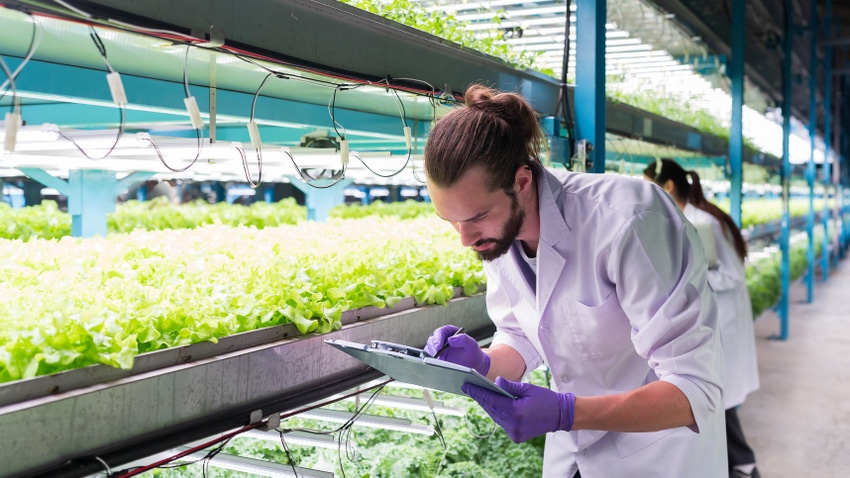Greenwashing spoils trust in sustainability movement, experts say
Publishing untrue or unverifiable sustainability claims is a widespread problem in the food and beverage industry, but collecting and reporting data with honesty and integrity can help build trust instead.

At a Glance
- Greenwashing refers to publishing untrue or unverified sustainability claims, typically for marketing purposes.
- While easy to do accidentally, greenwashing erodes trust in the sustainability movement and eco-friendly food products.
- Businesses can avoid greenwashing by establishing clear definitions and goals and collecting and verifying accurate data.
You’re doomscrolling Instagram when an ad appears. It includes a variety of hopeful claims about the future: “We care about the environment.” �“We use biodegradable packaging.” “We offset our carbon footprint.”
Consumers are becoming increasingly aware of the environmental impacts of their purchasing decisions, and many companies are trying to adjust accordingly. A pervasive, modern marketing practice called “greenwashing,” however, threatens to undermine real progress in foods, beverages and beyond.
“Greenwashing is any attempt to market or portray products as being environmentally sustainable without the ability to support that claim with evidence,” Kevin Krueger, senior manager of indirect procurement at Insomnia Cookies, said.
With more than 15 years of experience in sourcing and procurement, he knows many of the pitfalls with food and beverage marketing: “Some common examples are claims that are too vague to be falsifiable … or that are true but not meaningful, [such as] marketing disposable products or packaging as ‘biodegradable’ even though it’s impossible for them to biodegrade buried in a landfill.”
One of the trickiest aspects of greenwashing is that it’s not always intentional or malicious. Krueger suggested this may be because “sustainability” is such a broad term that a consensus on its definition doesn’t exist.
“The first and most important thing food and beverage professionals can do if they want to avoid greenwashing in their operations and supply chains is to make sure their definitions are specific, meaningful and measurable,” he explained. “Once we have good definitions, we can set clear expectations with suppliers and verify that they are being met.”
Definitive definitions
Henry Gordon-Smith, founder and CEO of controlled-environment agriculture (CEA) advisory firm Agritecture, believes in the triple bottom line approach to business, which involves analyzing the profitability of the enterprise, as well as its social and ecological impact. Nonetheless, the process begins with establishing what sustainability means, along with clear goals for achieving it.
“Most clients will say things like, ‘I don’t want to use plastic bags,’” he said. “Most will say things like, ‘I want to use less water,’ but they don’t really understand what that means.”
Greenwashing isn’t only a problem among food and beverage manufacturers; it permeates the entire supply chain. According to Agritecture’s 2021 Global CEA Census Report, 70% of farm operators said the industry was “susceptible to excessive greenwashing.” That bleak outlook may stem from a lack of clarity in the language used to describe sustainability.
For example, Gordon-Smith draws a line between “adaptation” and “mitigation.” He claims it’s too late to “solve” climate change, an idea focused on mitigation. Instead, society must adapt, which involves using existing resources more strategically. Some agricultural technologies and methods, such as vertical farming, may allow for less water usage by using more energy instead, as the latter resource is often thought to be more plentiful. But some companies claim mitigation when they’re focused on adaptation.
“Many [brands] are trying to tell a story of mitigation because there is a global awareness that we need to respond to this and consumers want to be part of reducing their impact,” Gordon-Smith explained. “I think, in most cases, it’s not done maliciously. In most cases, it’s done because people haven’t set their values properly from the top.”
Even if greenwashed for all the right reasons, inaccurate marketing claims can damage public trust in sustainability practices — and in a company and its products. How can brands combat this problem and start building trust?
What gets measured gets managed
After establishing clear goals and definitions, the next step for a business is to start tracking its efforts and gathering reliable data. Water and energy usage in vertical farming provides a great example.
“Every vertical farming company says it uses 95% less water,” Gordon-Smith said. “Yes, it’s true, some vertical farms can reduce their water [usage] in major ways relative to some outdoor farms, but you can’t compare every vertical farm to every outdoor farm … this is where measurement matters. When we surveyed operators for our sustainability focused census, over 60% didn’t even measure water [usage]. And vertical farming pretty much always has a higher carbon footprint than field agriculture.”
Although CEA often uses less water, high energy usage is a persistent problem for indoor farms. To address this concern, industry must change the way it gathers, analyzes and distributes data. One method involves hiring a consulting firm or using custom-built software, which can offer capabilities such as rolling feasibility study processes into a farm planning suite that allows the user to design a greenhouse, vertical farm or other sustainable agriculture project while inputting variables related to physical location and other factors.
In its sustainability communications guide, Agritecture measures such efforts in seven key areas:
Carbon footprint
Environmental pollution
Land usage
Water usage
Energy usage
Food security
Food waste
Companies can also use internal tools to measure, record and study their data, but these environmental factors are exceedingly complex. The most important part is fixing the fundamentals: Getting everyone, suppliers included, on the same page about definitions and goals can help ensure sustainability expectations are being met. What comes next is reporting sustainability strides accurately.
Transparency in communication
The last part of the process is how a brand communicates its new data. Without clear definitions and goals in place to bolster accountability, this is when greenwashing typically occurs.
“If we want to avoid greenwashing, we have to both collect data and use it to demand improvement,” Krueger said. “We tell ourselves that ‘what gets measured gets managed,’ and there is certainly some truth to that, but it’s also possible to get caught up in a sort of magical thinking where we assume that if we collect data on something, then we will automatically start caring and investing enough to change it, or that the data will reveal solutions that are easy and convenient and free.”
Easy, convenient and free are rarely the reality. Being sustainable in a realistic and responsible way requires work—the work of gathering and verifying data; reporting it with honesty and integrity; and using it to do better, as humans and brands.
“Sustainability is a process, it’s not an end, it’s not A to B,” Gordon-Smith said. “Sustainability is never over. It’s a constant process of improvement. Just like human beings’ lives. When do we ever arrive? We don’t arrive. We continue to push and challenge ourselves … and when we measure that, and we’re honest about where we are now, we can actually progress. When we don’t measure it, and when we’re dishonest about where we are now, we get lost or move backwards or deceive people around us.”
About the Author(s)
You May Also Like






